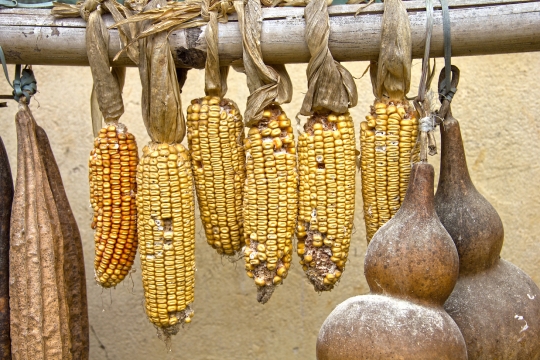CAPE TOWN: A study of how small-scale farmers in the Western Cape, South Africa, shape their decisions around using conventional or organic farming methods, based on their perceived risks, has won an economics Masters student at the University of Cape Town (UCT) an award for the best thesis in her year.
Nigerian student Hafsah Jumare, with the UCT Environmental Policy Research Unit (EPRU), won the Faculty of Commerce Award for Excellence for her Masters’-level study.
‘Farm technology which improves yields is generally considered to be a means out of poverty for low income farm households,’ Jumare says. ‘I worked with my supervisor, Professor Martine Visser, and doctoral student Kerri Brick, to see how risk preferences affect small scale Cape farmers’ uptake of organic and conventional farming technology.’
Jumare’s paper - titled Risk Preferences and the Poverty Trap: A Look at Technology Uptake amongst Small-Scale Farmers in the Western Cape - also considered, in an experimental setting, whether access to credit and insurance improved the adoption of these technologies.
Since finishing her degree, Jumare is now based back in Nigeria, where she is designing a complementary currency scheme for low income communities. This project is similar to the Bangla-Pesa and the Sarafu credit system run in Kenya.
‘My focus is how these schemes can be used to promote and improve environmental 'best' practices, for example in waste management, sustainable agriculture and recycling,’ she explains.
This experiment in community currency will be the focus of her doctoral studies, and she is currently working on her proposal.
The Award for Excellence was presented to Jumare in June 2016, and included prize money of R3 000. Jumare was joined by EPRU Honours student Diederick Ferrandi, who received the award for the best Honours thesis, for his paper on the structure of the hake fishing industry in South Africa.
